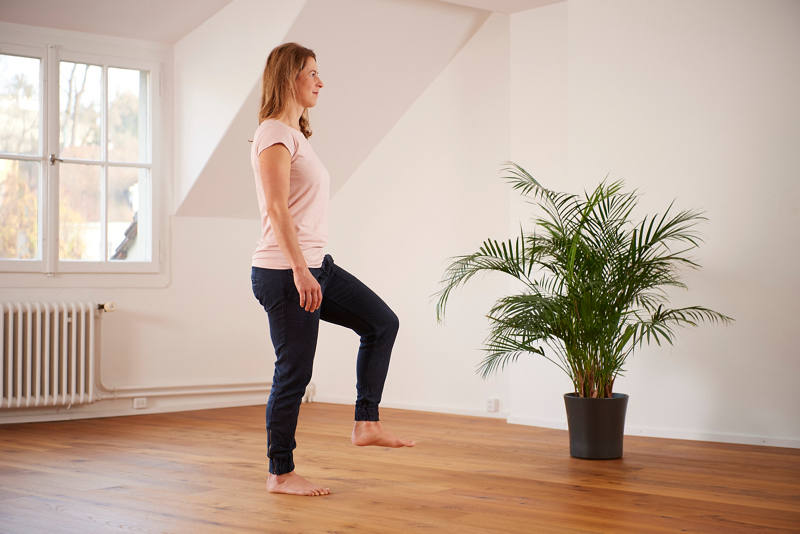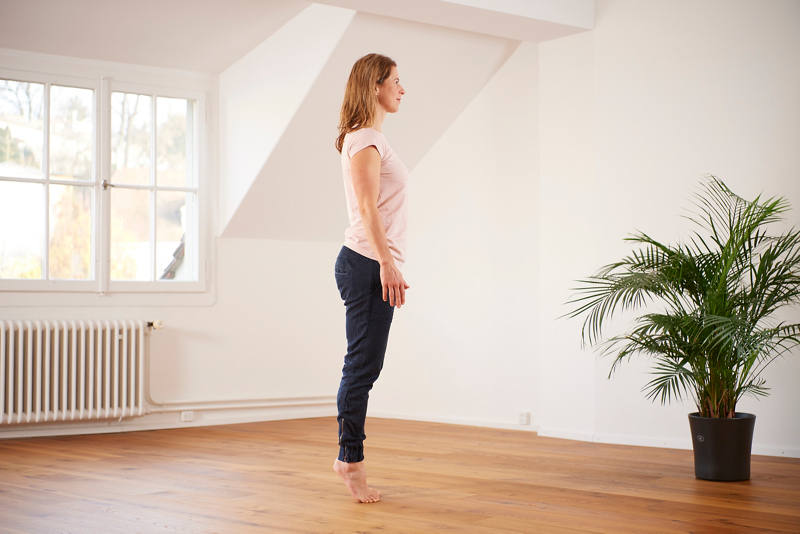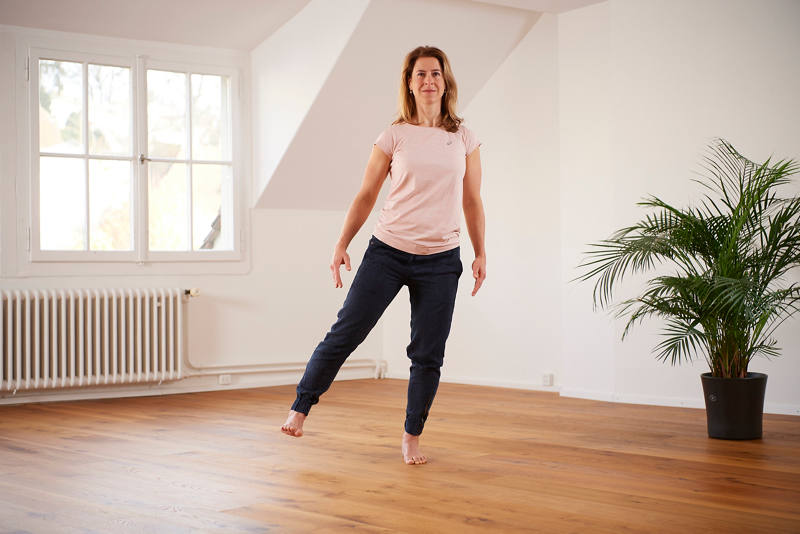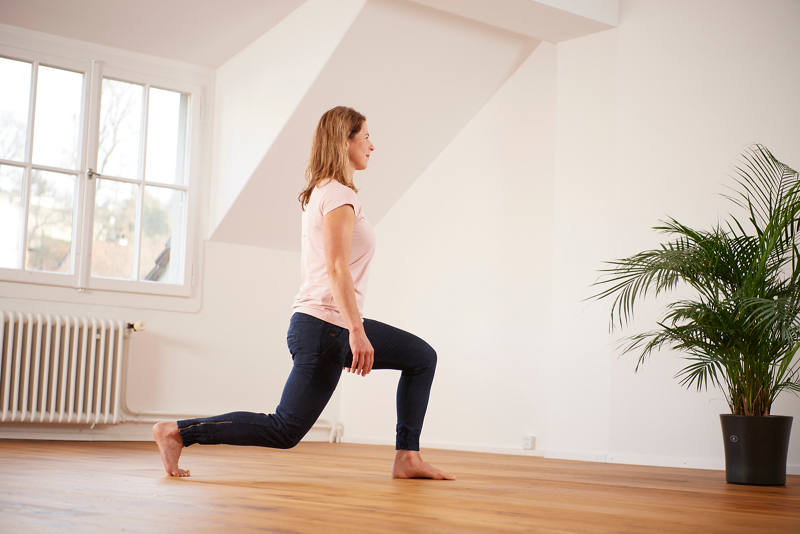Training for balance: 5 simple at-home exercises
A slight misstep and a brief panic, but we managed to get away with it. Our bodies respond with unprecedented rapidity, protecting us from harm. But one should not take this for granted. Because we will begin to lose our sense of balance if we do not use it.
Why train our balance?
Even if keeping our balance is an unconscious activity, it is still worth training. After all, just like muscular strength, we can improve our balance with specific exercises. If our muscles are prepared for such situations, they will react more efficiently and protect us, for example, from excessive reactions such as strains.
What may sound like pure theory can be seen in practice on a slackline: if you stand on a slackline with one foot for the first time, your leg trembles and the rope sways from side to side. The muscles react too strongly and slowly on both sides. But with a little practice, the muscles start to work efficiently – only small corrections are needed to keep the body in balance.
Who in particular should practise balance training?
The answer is: everyone! Especially as we get older, we often move less frequently – and the risk of falling increases. The earlier anyone starts with balance training, the better. After all, a good sense of balance and muscles that react fast are the best way to prevent a fall.
Exercise 1: Stand on one leg
Bend one leg, move it to your front or back and stand on the other leg for as long as possible.

To make it harder:
- Move the bent leg alternately from front to back
- Close your eyes
- Lean your head back
- Lean your head back and close your eyes
Exercise 2: Stand in a line
Place one foot in front of the standing foot. The heel of the front foot touches the toes of the rear foot. Hold for as long as possible.

To make it harder:
- Close your eyes
- Lean your head back
- Lean your head back and close your eyes
- Place foot behind standing foot
Exercise 3: Stand on tiptoes
Stand on tiptoes with both feet. Hold the position for as long as possible.

To make it harder:
- Gently rock up and down
- Stand on tiptoes on one leg
- Stand on tiptoes on one leg, on a cushion or on a rolled-up towel
Exercise 4: Lift leg to the side
Stand on one leg, lift the other leg to the side, as high as possible without compensating with the upper body.

To make it harder:
- Move the lifted leg forward, sideways and backwards without putting it down
- Do the same with eyes closed
Exercise 5: Lunges
With one leg, take one step forward. With the other leg, take one step back. Lower the hips until the front knee forms a right angle. Rise again and repeat the exercise.

To make it harder:
- Place front foot, back foot, or both feet on a cushion or rolled-up towel
- Place the feet more closely together
- Close your eyes



